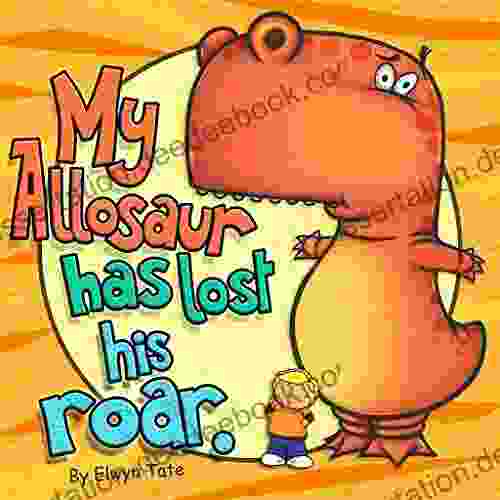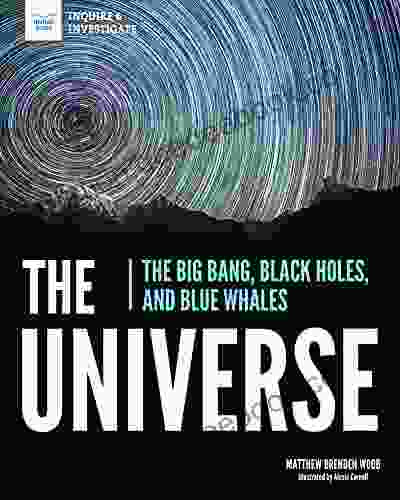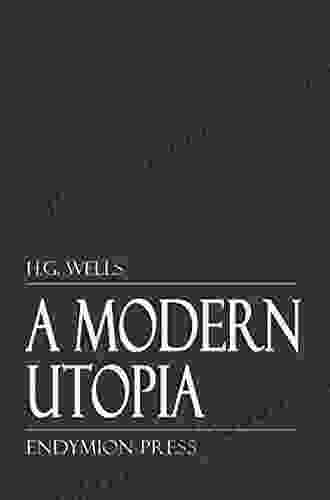My Allosaur Has Lost His Roar: A Comprehensive Guide to Dinosaur Vocalizations

Dinosaurs, those enigmatic creatures that roamed the Earth millions of years ago, have always captivated our imaginations. One of the most iconic aspects of these prehistoric giants is their thunderous roars, a sound that has been immortalised in countless films and documentaries.
However, recent research has shed new light on the vocal capabilities of dinosaurs, and surprisingly, not all of them roared. In fact, one of the most well-known dinosaurs, the Allosaur, may have lost its roar altogether.
4.7 out of 5
| Language | : | English |
| File size | : | 3082 KB |
| Screen Reader | : | Supported |
| Print length | : | 32 pages |
| Paperback | : | 76 pages |
| Item Weight | : | 2.57 ounces |
| Dimensions | : | 5.83 x 0.18 x 8.27 inches |
This article will embark on a journey into the fascinating world of dinosaur vocalizations, examining the evidence surrounding the Allosaur's lost roar. We will also explore the diverse range of sounds made by these ancient creatures, from the haunting cries of the Hadrosaurs to the eerie whistles of the Oviraptors.
The Allosaur's Lost Roar
The Allosaur was a massive carnivorous dinosaur that lived during the Late Jurassic period. It was one of the largest predators of its time, reaching lengths of up to 12 meters (40 feet). For decades, scientists assumed that the Allosaur, like other large theropods, possessed a deep and powerful roar.
However, a groundbreaking study published in 2020 challenged this long-held belief. Researchers at the University of Bristol analyzed the fossilised remains of an Allosaur's larynx, the organ responsible for producing sound in modern animals. They discovered that the Allosaur's larynx was significantly different from that of living reptiles and birds, which are the closest living relatives of dinosaurs.
Specifically, the Allosaur's larynx lacked a key structure called the vocal folds, which are essential for producing the low-frequency sounds associated with roaring. Instead, the Allosaur's larynx was more similar to that of crocodiles, which produce a range of grunts and hisses.
Based on these findings, the researchers concluded that the Allosaur likely did not possess a roar. Instead, they speculate that it may have communicated using a variety of other vocalisations, such as grunts, hisses, and even whistles.
The Diverse Vocalizations of Dinosaurs
While the Allosaur may have lost its roar, other dinosaurs possessed a wide range of vocalizations. Evidence from fossilized remains, trackways, and coprolites (fossilized feces) suggests that dinosaurs used sound to communicate with each other, attract mates, and defend their territory.
Hadrosaurs: Also known as duck-billed dinosaurs, Hadrosaurs were herbivores that lived in large herds. They possessed a complex vocal repertoire that included a variety of calls, whistles, and honks. Some Hadrosaurs, such as the Parasaurolophus, had elaborate crests on their heads that may have amplified their calls.
Ceratopsians: These horned dinosaurs had a distinctive vocalization that resembled a low-pitched moo. The Triceratops, one of the most famous Ceratopsians, is believed to have used its frill to amplify its calls.
**Oviraptors:** These bird-like dinosaurs were known for their eerie whistling calls. Their long, slender necks may have allowed them to produce a wide range of high-pitched sounds.
Birds: Although birds are not technically dinosaurs, they are the closest living relatives of these ancient creatures. Birds possess a remarkable ability to produce a wide range of vocalizations, from simple chirps to complex songs. Some birds, such as parrots and crows, are even capable of mimicking human speech.
Implications for Dinosaur Behavior
The discovery of the Allosaur's lost roar has important implications for our understanding of dinosaur behavior. It suggests that not all dinosaurs roared, and that they may have used a variety of other vocalizations to communicate.
This research also provides insights into the evolution of vocalizations in birds. Birds evolved from small, feathered dinosaurs, and their vocal abilities may have originated from the diverse vocal repertoire of their ancestors.
Additionally, the study of dinosaur vocalizations can help us understand the social and ecological interactions of these prehistoric creatures. By analyzing the different calls and sounds produced by different species, scientists can gain insights into their mating behaviors, territorial disputes, and predator-prey relationships.
The lost roar of the Allosaur is a reminder that our understanding of dinosaurs is constantly evolving. As new research emerges, we are gaining a deeper appreciation for the complexity and diversity of these ancient creatures.
The study of dinosaur vocalizations is a fascinating field that is still in its early stages. By continuing to explore the evidence, we can unlock the secrets of these enigmatic creatures and gain a glimpse into the vibrant world they once inhabited.
4.7 out of 5
| Language | : | English |
| File size | : | 3082 KB |
| Screen Reader | : | Supported |
| Print length | : | 32 pages |
| Paperback | : | 76 pages |
| Item Weight | : | 2.57 ounces |
| Dimensions | : | 5.83 x 0.18 x 8.27 inches |
Do you want to contribute by writing guest posts on this blog?
Please contact us and send us a resume of previous articles that you have written.
 Book
Book Page
Page Text
Text Story
Story Genre
Genre Paperback
Paperback E-book
E-book Magazine
Magazine Paragraph
Paragraph Sentence
Sentence Glossary
Glossary Bibliography
Bibliography Preface
Preface Manuscript
Manuscript Scroll
Scroll Codex
Codex Tome
Tome Narrative
Narrative Biography
Biography Autobiography
Autobiography Reference
Reference Dictionary
Dictionary Character
Character Librarian
Librarian Catalog
Catalog Card Catalog
Card Catalog Borrowing
Borrowing Periodicals
Periodicals Study
Study Lending
Lending Reserve
Reserve Journals
Journals Special Collections
Special Collections Interlibrary
Interlibrary Literacy
Literacy Study Group
Study Group Dissertation
Dissertation Storytelling
Storytelling Theory
Theory Textbooks
Textbooks Conrad Hafen
Conrad Hafen Jackie Sonnenberg
Jackie Sonnenberg Traci Glover Walker
Traci Glover Walker Anne Michaels
Anne Michaels C Ellen Watts
C Ellen Watts Randolph J May
Randolph J May Kim Long
Kim Long Anna Esaki Smith
Anna Esaki Smith Stuart A Grant
Stuart A Grant Julie Falango
Julie Falango Michael Steen
Michael Steen James Rogan
James Rogan Janet Garman
Janet Garman Tim Needles
Tim Needles John Masefield
John Masefield Rebecca Setler
Rebecca Setler Richard D Mahoney
Richard D Mahoney 3rd Edition Kindle Edition
3rd Edition Kindle Edition Bill Ferris
Bill Ferris Ivo Mijnssen
Ivo Mijnssen
Light bulbAdvertise smarter! Our strategic ad space ensures maximum exposure. Reserve your spot today!

 Dustin RichardsonMuch More Than Calamari: Dive into the Culinary Explorations of Chris...
Dustin RichardsonMuch More Than Calamari: Dive into the Culinary Explorations of Chris...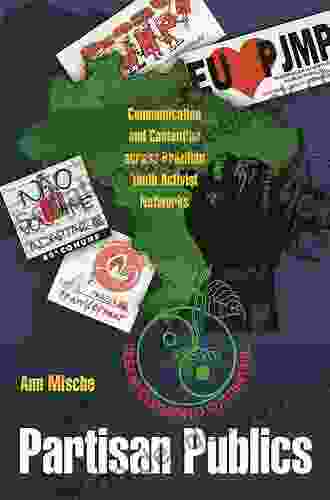
 Cole PowellCommunication And Contention Across Brazilian Youth Activist Networks: A Case...
Cole PowellCommunication And Contention Across Brazilian Youth Activist Networks: A Case... Tyler NelsonFollow ·19.4k
Tyler NelsonFollow ·19.4k Carter HayesFollow ·7.2k
Carter HayesFollow ·7.2k Carson BlairFollow ·8.1k
Carson BlairFollow ·8.1k Roy BellFollow ·7.6k
Roy BellFollow ·7.6k Don ColemanFollow ·9k
Don ColemanFollow ·9k Colby CoxFollow ·2.6k
Colby CoxFollow ·2.6k Ivan TurnerFollow ·12.6k
Ivan TurnerFollow ·12.6k John Dos PassosFollow ·6.8k
John Dos PassosFollow ·6.8k

 Keith Cox
Keith CoxFrench Pieces for Flute and Piano: A Journey into...
The world of...
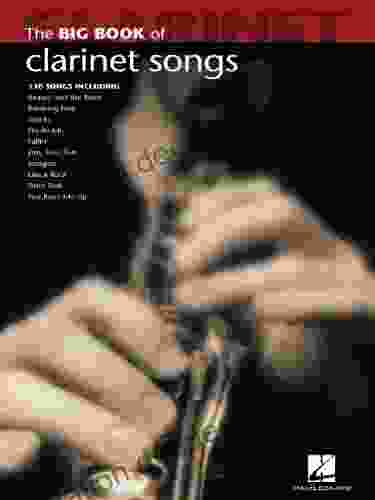
 Justin Bell
Justin BellThe Big Clarinet Songbook: A Musical Treasure for...
The clarinet, with its rich...
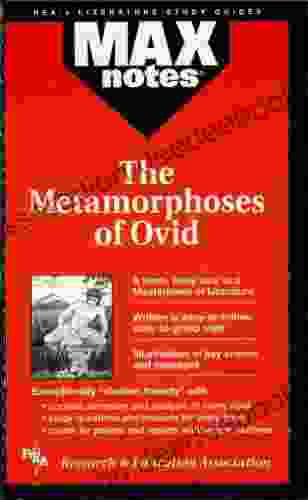
 Jamie Blair
Jamie BlairThe Metamorphoses of Ovid: A Masterpiece of...
An Epic Tapestry of Mythology and...
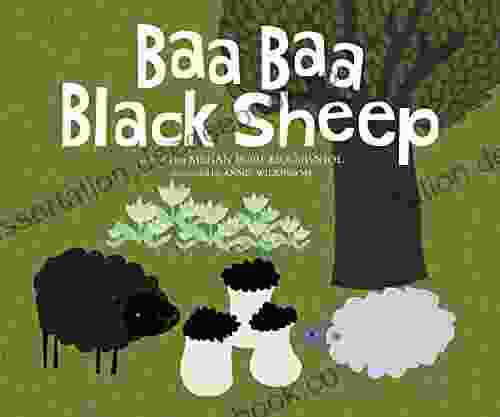
 Alan Turner
Alan TurnerBaa Baa Black Sheep: A Classic Sing-Along Song for Kids
Baa Baa Black Sheep...

 Bradley Dixon
Bradley DixonUnveiling the Enigmatic Shakespeare Spy: The...
Prologue: The Shadowy World...

 Gilbert Cox
Gilbert CoxUnleash Your Creativity with Plastic Craft Lace Projects:...
Plastic craft lace is a...
4.7 out of 5
| Language | : | English |
| File size | : | 3082 KB |
| Screen Reader | : | Supported |
| Print length | : | 32 pages |
| Paperback | : | 76 pages |
| Item Weight | : | 2.57 ounces |
| Dimensions | : | 5.83 x 0.18 x 8.27 inches |


